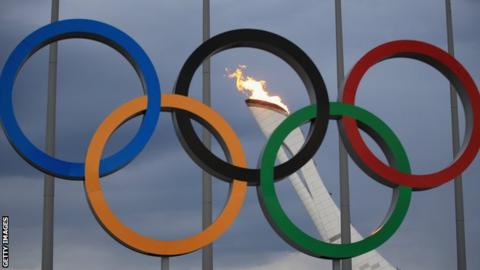
Up to 31 athletes from six sports could be banned from competing at the Rio Games, Olympic chiefs have said.
The announcement comes after the International Olympic Committee (IOC) retested 454 selected doping samples from the 2008 Games in Beijing.
The IOC said the retests were conducted using the very latest scientific analysis methods.
It also revealed it is awaiting the results of 250 retests from the 2012 Olympics in London.
“All these measures are a powerful strike against the cheats we do not allow to win,” IOC president Thomas Bach said.
“They show once again that dopers have no place to hide. We keep samples for 10 years so that the cheats know that they can never rest.
“By stopping so many doped athletes from participating in Rio, we are showing once more our determination to protect the integrity of the Olympic competition.”
The IOC said the retests were focused on athletes who could potentially take part in Rio.
It added 12 affected national Olympic associations would be informed in the coming days.
IOC steps up doping fight
The latest measures taken by the IOC come after Russia and Kenya were found to have breached anti-doping rules in recent months.
Russia was banned from athletics competition in November after a World Anti-Doping Agency (Wada) commission report recommended the sanction.
The nation’s athletics federation accepted its ban from international competition, with sports minister Vitaly Mutko saying this week Russia was “very sorry” and “ashamed” of cheating athletes who were not caught by its anti-doping systems.
But he argued not lifting the ban for the Rio Games would be “unfair and disproportionate” and that clean athletes should not be punished.
Meanwhile, Kenyan sports minister Hassan Wario is confident the nation will not be banned from Rio despite being judged to be non-compliant with the global anti-doping code.
Wada has written to Kenya, outlining what it must do to meet the anti-doping code.
The IOC said it is funding Wada to carry out intelligence-gathering before the Rio Games to make pre-event testing “as efficient and independent as possible”.



